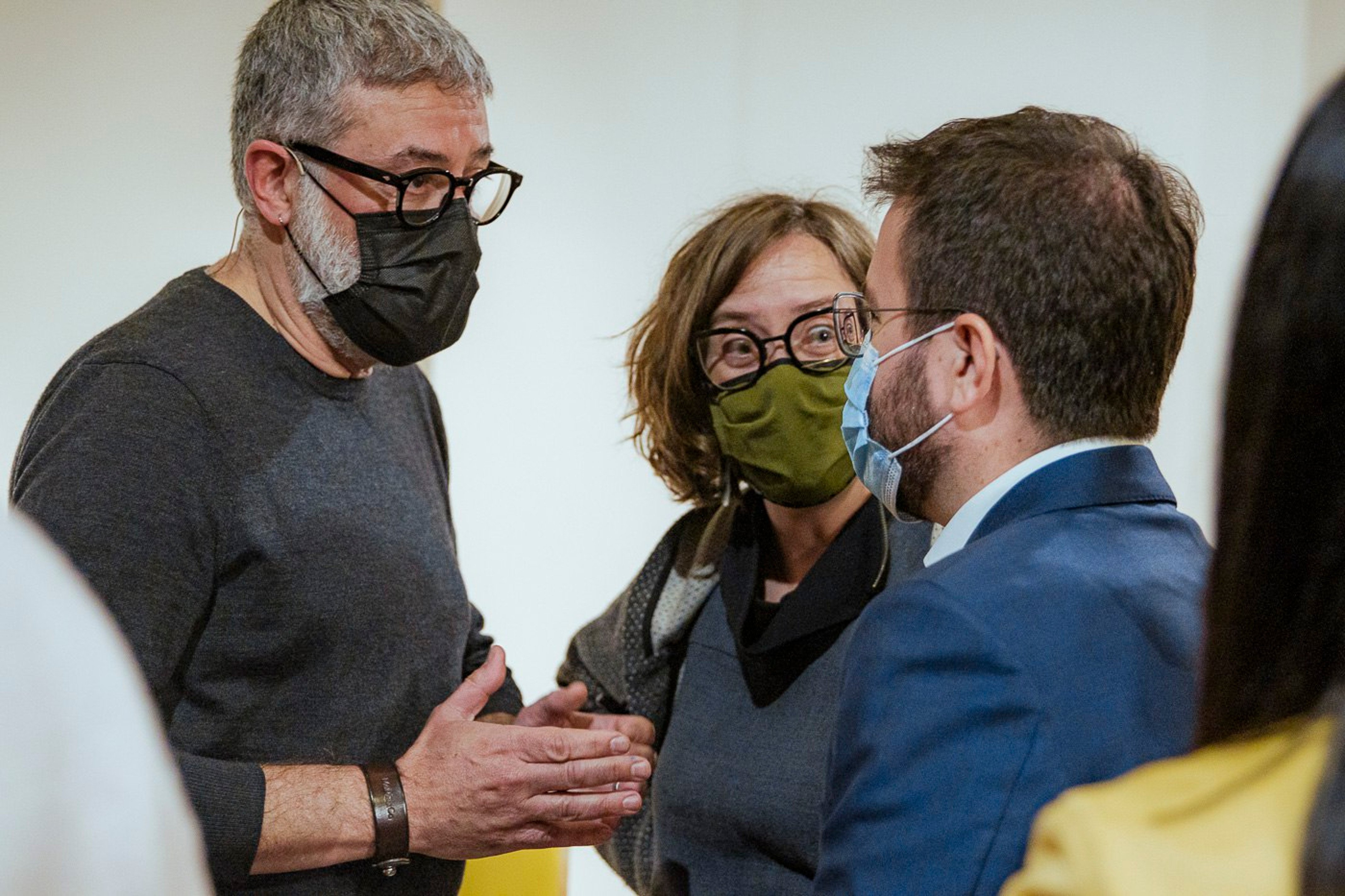On December 23rd the Parliament of Catalonia approved the Catalan government budget law, for the first time since 2009 within the deadline, but with the independentist forces divided: ERC and Junts had to get it approved through an agreement with the Commons. Thus, they moved away from the investiture pact of president Pere Aragonès, between ERC and the CUP which laid down, amongst other things, that CUP would contribute to the legislature’s stability by voting in favour of procedures such as the budget. Despite this, recently, the anticapitalist bloc has opted for being rather disruptive and move away from the centre, something ERC does not like very much. This is the reason why president Aragonès has explained that “in the coming weeks” he plans to devote himself to rebuild trust with the CUP.
According to Aragonès’s assessment of the investiture pact, following the CUP’s negative vote on the budget, other issues agreed upon, such as the commitment to submit to a no confidence motion in 2023, become meaningless. This was stated by the Catalan government president in an interview with the news agency Efe, in which he reaffirmed his wish to see the programme pacts entered into with CUP implemented, and he recalled that a two-year deadline was established to do so. However, he considers that the negative vote on the budget by CUP means that the assessment can be brought forward. He said that “now, a no confidence motion in 2023”, as provided for in the investiture pact “makes no sense”. “There is little point in submitting to a no confidence motion if the confidence has been already withdrawn”, he argued. A few days ago, Parliament Speaker, Laura Borràs, said that in her opinion he should submit to the motion as pacts have to be complied with.
For Aragonès, however, rebuilding trust as from right now is what is needed: “We have to work from now on to rebuild this trust, and to that I will devote myself in the coming weeks and months”, he assured. He also explained that he has kept up his contacts with the bloc, and from these contacts he hopes that the usual relationship with a government’s priority partner will be restored.”
The budget: implementing the investiture agreement
"I am convinced that the CUP will see how the approved budget implements the investiture agreement, and this will be a good starting point to change its position and work together on shared agreements", said Aragonès. In his opinion, there is a "desire for agreements and stability in the institutions to be implement the policies for social, economic, green and feminist transformation" that the government is promoting.
Aragonès highlighted initiatives such as the internalisation of 061, the implementation of the basic income pilot plan, supporting the creation of a public energy company, free nursery school education, the reduction of ratios in the first year of preschool education, the start of the first programme against menstrual poverty through the education system and the maintenance of progressive taxation". All of these, he said, are "subjects that are in the investiture agreement", which is why the CUP "will have to explain why, although the investiture agreement is being fulfilled, they decided not to support the budget".
The wide road with the Commons
The other side of the coin in the budget debate is the parliamentary group headed by Jéssica Albiach, the Commons, whom the Catalan president has "thanked" for their willingness to vote in favour of the Catalan government’s budget. "In the investiture debate I also addressed them to invite them to walk the wide road of all those who defend policies of progress and a resolution of the political conflict by means of a referendum and an end to repression. En Comú Podem is on this wavelength", he stressed.

